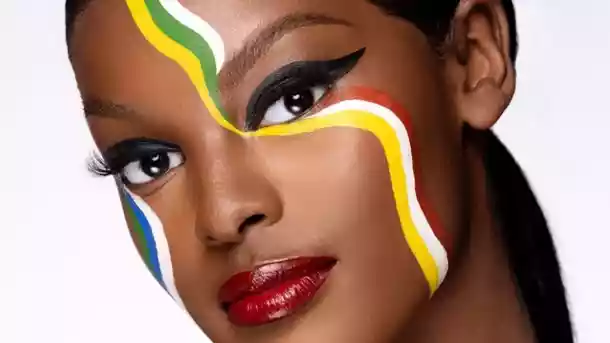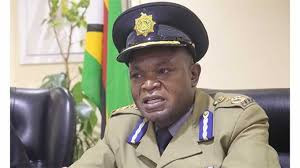
Miss South Africa 2024 finalist Chidimma Adetshina has made the “difficult decision” to withdraw from the beauty pageant following widespread controversy around her citizenship.
Ahead of the finale, which is set to take place at the SunBet Arena in Pretoria on Saturday, August 10, the 23-year-old posted a statement on her Instagram stories announcing her decision.
She wrote: “I would like to start off by thanking everyone who has stood beside me right from the start of my Miss South Africa journey. I'm really grateful for all the love and support I have been shown.”
“Being part of the Miss South Africa 2024 competition has been an amazing journey; however, after much careful consideration, I have made the difficult decision to withdraw myself from the competition for the safety and wellbeing of my family and I.
“With the support of the Miss South Africa organisation, I leave with a heart full of gratitude for this amazing experience.”
The Soweto-born beauty added: “I would like to take this opportunity to wish my fellow finalists all the best for the remainder of the competition. Whoever wears the crown represents us all.”
The law student and model’s withdrawal from the 66th edition of the Miss South Africa pageant, in which she made the top 11, comes after an investigation by the Department of Home Affairs (DHA) into the verification of her citizenship, following a request from pageant organisers.
On Wednesday the department said that her mother had allegedly committed fraud. In a statement, DHA Minister Leon Schreiber, explained that an innocent South African mother had her identity stolen as part of the fraud allegedly committed by Adetshina’s mother.
- Zim headed for a political dead heat in 2023
- Nkayi gets new CEO
- Mashwede takes on Biti’s clerk
- Set up environmental courts: CSOs
Keep Reading
"Adetshina could not have participated in the alleged unlawful actions of her mother, as she was an infant at the time when the activities took place in 2001," the Minister added.
Meanwhile, the Miss SA organisation has reposted Adetshina’s statement on its Instagram Stories but has not yet commented on her withdrawal.
The controversy around the Miss SA finalist’s citizenship has seen her being subjected to xenophobic and afrophobic attacks, which intensified on social media after what seemed like a video of her celebrating with her Nigerian family.
Scores of South Africans have since weighed in on the matter, including prominent personalities and organisations such as renowned gender and social activist Anele Mda, Sports, Art and Culture Minister Gayton McKenzie, Sonke Gender Justice, musician DJ Sbu and media personlity Pearl Thusi.
Following her decision to leave Miss SA, Adetshina was trending on X.
@_MoYaSelabe who wrote: “I was one of those giving her the benefit of the doubt, why would her parents allow her to enter Miss SA knowing they committed fraud. Now the question is did #ChidimmaAdetshina withdraw from the pageant because of safety or coz they got exposed.”
@chinowordu added: “I am praying for this girl #ChidimmaAdetshina imagine an entire country hating you because you are contesting in a pageantry. What that can do to a person.”
@Tebzolah posted “I commend South Africans for revealing potential fraud that could have tarnished our nation’s reputation on the international stage. To those celebrities and esteemed individuals who defended this criminal behaviour, be ashamed. #ChidimmaAdetshina mom has explaining to do.”
@Cannibal_City also wrote: “Your fierce beauty will remain the most potent spectacle on the world calendar. You blasted Miss SA back to the Stone Age. Yours here is done!”
Meanwhile, immigration specialist Stefanie De Saude Darbandi also commented on the saga. In a statement, she said that the controversy surrounding Adetshina’s “background was fuelled by xenophobic sentiments”.
“Many assumed she was Nigerian due to her choice of flag and her family’s heritage.”
“This situation underscores how prejudice and unfounded suspicions can influence perceptions and how these biases can be reinforced by subsequent events,” she added.
She also believes that it is crucial to understand that a foreigner alone cannot commit identity theft or fraud without assistance from someone within the system.
“Fraudulent activities often involve multiple parties, and in many cases, foreigners approach the Department of Home Affairs for assistance and are provided with incorrect guidance.”
“It’s possible that Chidimma’s mother might have been a victim of such systemic issues, rather than a perpetrator of fraud,” she explained.
“According to South African law, a prerequisite for citizenship by naturalisation, which we were told is how she obtained her status, is holding a valid permanent residency permit.”
“We don't know if Chidimma’s mother actually had permanent residency status, but this would have been one of the lawful requirements to meet.”
“If her mother had lawful permanent residency at the time of Chidimma’s birth, then Chidimma’s citizenship might still stand.”
“However, if her mother’s permanent residency and subsequent citizenship were fraudulent, then Chidimma’s status as a South African citizen is in jeopardy, potentially rendering her an illegal foreigner.”
She believes that regardless of the outcome, it is important to recognise that Chidimma is a victim in this situation.
“She has lived her entire 23 years in South Africa, believing herself to be a legitimate citizen,” Darbandi noted.
“She should not bear the consequences of any fraudulent actions taken without her knowledge or consent.”
She also believes that its vital to consider that Home Affairs’ systems and processes can sometimes fail, leading to unintentional fraudulent statuses for individuals.”
“This case should serve as a wake-up call for all South Africans. It highlights the need to address systemic issues within the Department of Home Affairs and to ensure that the processes for obtaining residency and citizenship are transparent and fair.”
“Moreover, it calls for introspection about the pervasive xenophobia and discrimination in our society.







